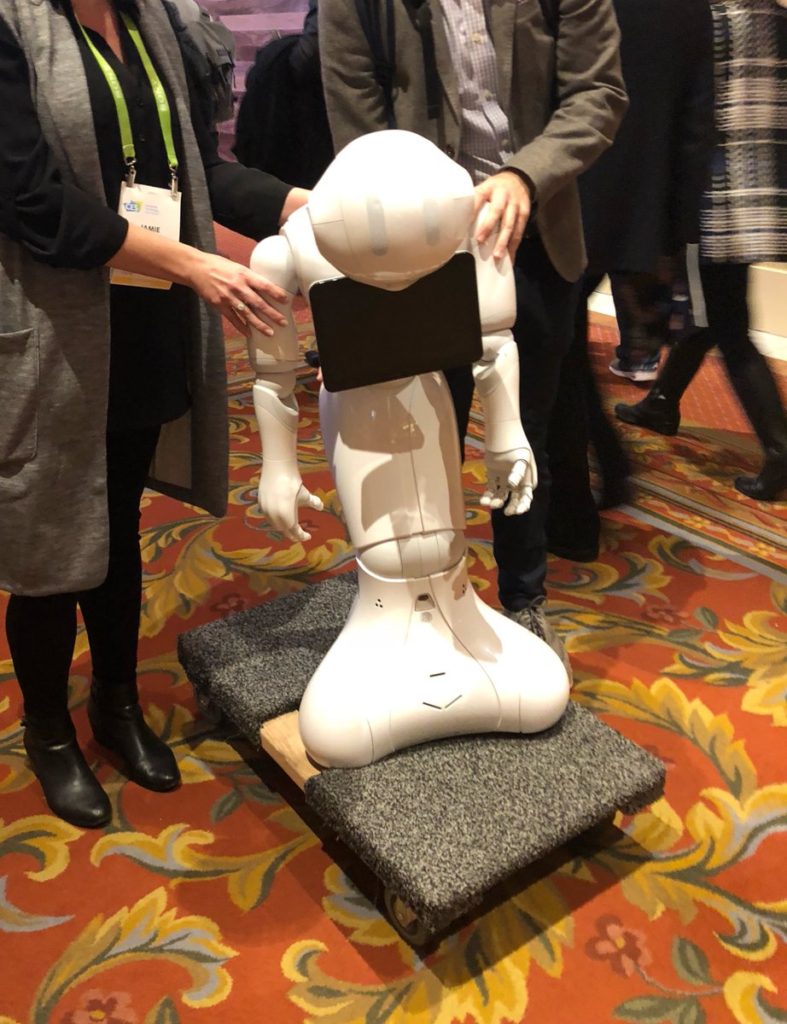Amazon delivers a Dose of Reality in shrinking Pharmacy, One Medical. Using the “realigning some resources to help accelerate our efforts” meme, there are about 115 to 400 staff who will be ‘transitioned’ out of their present jobs, according to sources (Business Insider, Seeking Alpha). Areas affected were not disclosed. However, the Amazon division likely taking the hardest hit is One Medical, according to these sources.
- Amazon has already announced that One Medical must reduce operating losses by $100 million this year. A large step they are taking is to close One Medical’s corporate offices in New York, Minneapolis, and St. Petersburg, Florida, reducing its San Francisco office space to one floor. They cited to industry publications that most employees are remote workers.
- Unsurprisingly, Amazon is targeting major cost reductions. Fixed operating costs that are currently at 41% of total revenue will be reduced to 20% by 2028. Cost per patient visit will be reduced from $372 in 2023 to $322 in 2024, from $372 in 2023.
- Legal, finance, and technology teams will report to Amazon’s healthcare business structure
- Operating areas will increase from four to seven, reporting to a new head of operations
- CFO Bjorn Thaler will move to a new position focused on growth initiatives, reporting to VP of Health Services Neil Lindsay
At the time of the acquisition, industry thinkers were wondering what Amazon would do with the money-losing One Medical clinics, for which they paid $3.9 billion but never turned a profit and lost $420 million in 2022, its last year of independent operations. Neither membership nor revenue has been reported since the 2023 closing. In 2022, One Medical had 700,000 patients, 8,000 company clients and 125 physical offices in 12 major US markets including NYC, Los Angeles, Boston, and Atlanta. Amazon has been promoting One Medical online and on TV, most aggressively to its Prime members with promotional membership pricing.
Amazon has aggressively cut tens of thousands of jobs and costs since 2023 in its Audible, Prime Video, Twitch and Buy with Prime units, and completely shut down Halo, its entry in fitness bands and sleep trackers. It has also been aggressively challenged on patient privacy and cross-using information by the FTC, most recently around Amazon Clinic.
Not mentioned in reporting was the FTC and DOJ scrutiny One Medical’s acquisition received between Amazon’s offer and the closing. The two agencies declined to move at that time [TTA 23 Feb 23], but FTC is continuing to build its case against Amazon–and One Medical may be a factor. For context on Amazon’s situation, Readers may want to review last December’s assessment of Amazon to date, Has Amazon lost its ‘edge’ in healthcare? Or finally seeing reality? FierceHealthcare, Healthcare Finance, Healthcare Dive
Walgreens’ Reality includes C-suite reshuffles, scaring up cash. The new president of US Healthcare and EVP reporting to CEO Tim Wentworth is Mary Langowski. She is currently CEO of Solera Health. Her prior experience at CVS was as EVP and chief strategy and corporate development officer. Moving to an advisor position is the current president, John Driscoll. US Healthcare includes VillageMD, Summit Health/CityMD and CareCentrix. In addition, Manmohan Mahajan was appointed as permanent CFO, having held the position on an interim basis from July. Elizabeth Burger was named as EVP and chief HR officer from a similar position at industrial Flowserve, replacing Holly May who departed in November and is now with Petco. Crain’s Chicago Business, FierceHealthcare
Slipping under this was a further sale of Walgreens’ position in Cencora, the former AmerisourceBergen, a highly diversified pharmaceutical distributor. The sale of approximately $942 million of Cencora common stock was subject to the completion of the Rule 144 sale, and included a concurrent share repurchase by Cencora of approximately $50 million for a total to WBA of $992 million. WBA’s position is now 13% versus 15%; partnership and board representation remains in place. From the WBA release, “Proceeds to Walgreens Boots Alliance will be used primarily for debt paydown and general corporate purposes, as the company continues to build out a more capital-efficient health services strategy rooted in its retail pharmacy footprint.”
Is NeueHealth creating its own Reality? At the end of January, Bright Health Group faded to black and relit as NeueHealth, its value-based care medical practice division, and moved its HQ from poky, cold, failing Minneapolis to Doral, Florida. It sold or closed all its health plans in a heap of losses, most of which have bills coming due via CMS Repayment Agreements which come due on or before 14 March 2025. Most of the industry is shaking its head in wonder that NeueHealth has made it this far.
The discussion in MedCityNews is worth reading. It includes Ari Gottlieb of A2 Strategy who points out that the company is $1.4 billion in debt to the likes of investors Cigna Ventures, New Enterprise Associates, and CalSTRS. They owe $89 million to Texas to cover risk liabilities for its shuttered ACA plans. Over $100 million remains in escrow from the Molina sale to cover obligations from its Medicare Advantage plans. Mr. Gottlieb predicts that NeueHealth will be drained and go bankrupt before the Feds come calling in March 2025. Another analyst, Tyler Giesting, director of healthcare and life sciences at West Monroe, takes a sunnier view that NeueHealth is in a sector, value-based care, that payers are interested in and will buy into, as long as the practices perform. This Editor will reiterate her wonder at NeueHealth’s management maneuvers. They’ve managed to play multiple ends against the middle and tie masterful Gordian knots (pick your analogy) to stay alive until, they hope, 2025 and better times.
More Reality delivered in two layoffs in once-hot companies that thought pandemic les bon temps rouler would last forever:
- San Diego-based Cue Health, a biotech company that produced Covid-19 tests, is laying off another 245 employees. This adds to the 884 workers in primarily San Diego laid off last year. Cue grew to over 1,500 employees when it got the first FDA approval for its 20-minute molecular test kits to supply the US government, the NBA, Google, and other large companies. Cue IPO’d in September 2021 at $200 million and $16/share, with a valuation of $3 billion. Its shares on Nasdaq are today at $0.25. The company also offers a test for mpox (monkeypox) and is seeking FDA approval for its RSV and Flu test kits. San Diego Union-Tribune
- New York City-based Nomad Health, a healthcare staffing service that took advantage of the pandemic demand for travel nurses but had not fully transitioned into other temporary healthcare workers, released 17% of staff, from 691 to 572 employees. Nomad was reeling not only from lower demand but also correspondingly lower rates. It raised $200 million to date from investors such as Adams Street Partners and Icon Ventures. Forbes
And the final Reality is how healthcare companies, from providers to digital health, are phrasing what seems to be endless layoffs. Euphemisms such as rightsizing, org change, involuntary career events, corporate outplacing, and offboarding are all being used to sweeten for public consumption that a lot of people, hired so eagerly in 2020-22, are losing their jobs. From the Bloomberg article (paywalled), “They somehow seem to believe that if they use language that is more vague and less emotional, that people won’t get as upset,” said Robert Sutton, PhD, professor of management science and organizational behavior with Stanford University School of Engineering. Instead, euphemisms tend to have the opposite effect. Becker’s This Editor has been both a survivor and a victim of same, being in marketing which is always vulnerable. Contract and consulting work, which anticipate a stronger market, are like the Sahara–few and dry water holes. Expect layoffs and a dead market for experienced talent to be a major factor in this year’s US elections, despite the reported low unemployment numbers (that no one believes anymore).
 VillageMD starts releasing staff in soon-to-shut Illinois clinics. Layoffs have already started in the Illinois clinics owned and operated by Walgreens-owned VillageMD. As reported in Crain’s Chicago Business, two of their six Village Medical clinics have given notice to doctors, practice managers, medical assistants, registered nurses, and ultrasound and radiology technicians. This eliminated 24 positions at the Lincoln Park (Chicago) office and 25 positions at their Wheeling clinic, both free-standing independent locations. The layoffs took place between 20 February and 5 March. It is not clear from the article or the WARN Notice filed 20 February with the state Department of Commerce whether the layoffs take effect by or on 19 April or if the clinics are being run by a skeleton staff before closure.
VillageMD starts releasing staff in soon-to-shut Illinois clinics. Layoffs have already started in the Illinois clinics owned and operated by Walgreens-owned VillageMD. As reported in Crain’s Chicago Business, two of their six Village Medical clinics have given notice to doctors, practice managers, medical assistants, registered nurses, and ultrasound and radiology technicians. This eliminated 24 positions at the Lincoln Park (Chicago) office and 25 positions at their Wheeling clinic, both free-standing independent locations. The layoffs took place between 20 February and 5 March. It is not clear from the article or the WARN Notice filed 20 February with the state Department of Commerce whether the layoffs take effect by or on 19 April or if the clinics are being run by a skeleton staff before closure. 













Most Recent Comments